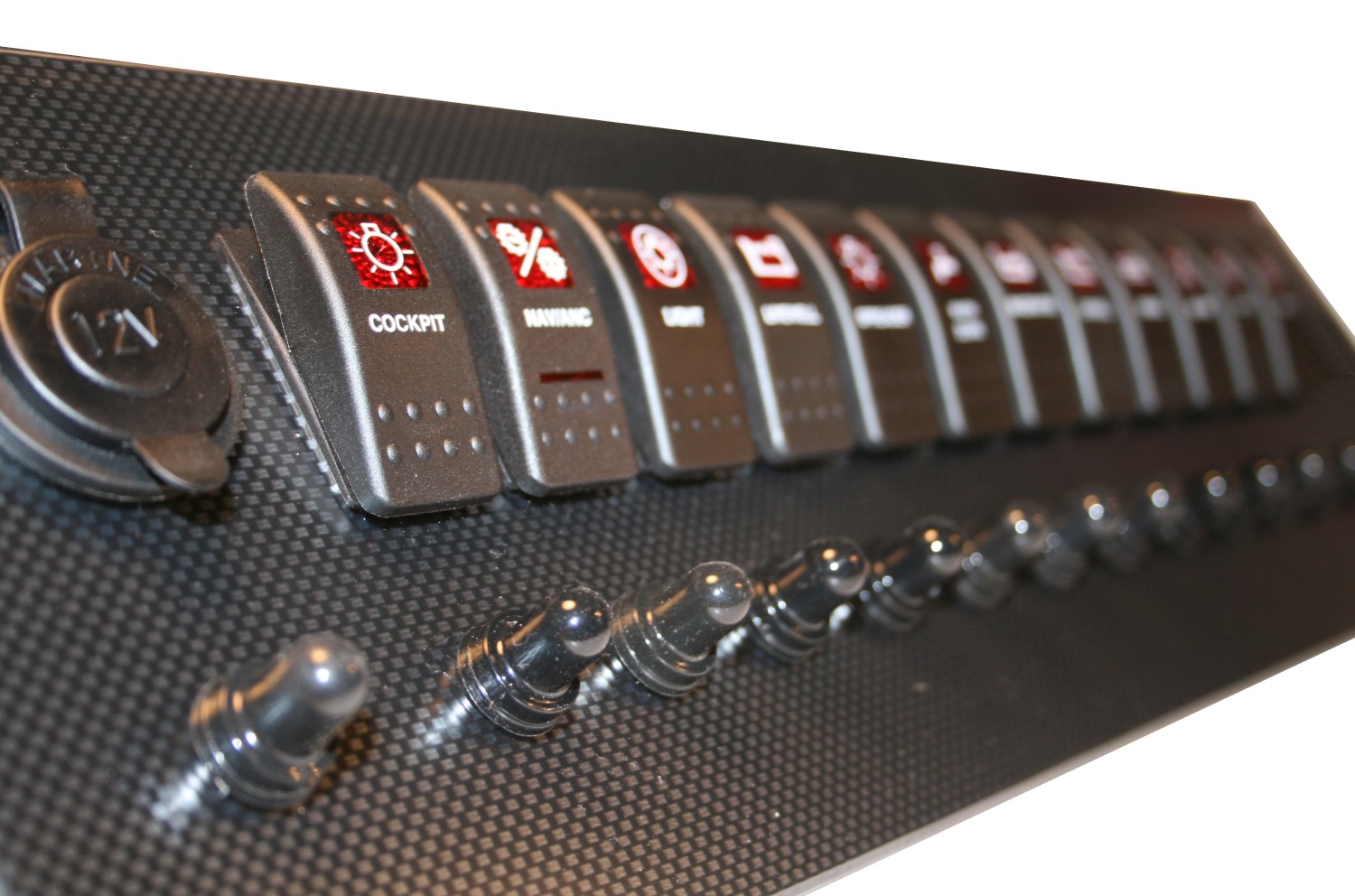Okay, so you've got this adorable little boat, right? It's practically begging for adventures. But before you set sail and embrace the open water, let’s talk electrical systems. Because let's be real, a tangled mess of wires isn’t exactly the nautical chic we're going for. Enter: the marine switch panel. It's the unsung hero of your boat's electrical setup, the command center for all things power-related.
Imagine this: you’re out on the water, sun on your face, wind in your hair (metaphorically, of course, unless you’re rocking a truly epic seafaring braid). You reach for the switch to turn on your navigation lights, and…nothing. A faulty electrical system can quickly turn your dream day into a maritime nightmare. This is where a well-chosen and properly installed marine switch panel comes in, ensuring that your boat's electrical system is both functional and safe.
Now, choosing a marine switch panel isn't as simple as grabbing the first one you see. There are factors to consider, like the size of your boat, the number of electrical accessories you need to power (bilge pump, navigation lights, fish finder, the works), and the overall aesthetic you’re aiming for. After all, your boat is an extension of your personal style, and every detail matters. Think of your switch panel as the jewelry of your boat’s dashboard – functional and fabulous.
Historically, boat electrical systems were, shall we say, less than sophisticated. Think exposed wires and precarious connections, a recipe for disaster. The development of dedicated marine switch panels marked a significant leap forward in boat safety and convenience. These panels provide a centralized, organized hub for controlling electrical circuits, protecting them from the harsh marine environment, and preventing potentially dangerous short circuits. They also bring a much-needed dose of order to what could otherwise be a chaotic tangle of wires.
So, what exactly is a marine switch panel? It's essentially a weatherproof box containing a series of switches, circuit breakers, and fuses designed specifically for the marine environment. These panels are built to withstand the corrosive effects of saltwater, the constant vibration of a boat in motion, and the occasional splash of unexpected waves. They’re the tough-as-nails guardians of your boat’s electrical system.
Benefits of a well-installed panel include safety, organization, and ease of use. For example, a clearly labeled switch panel makes it easy to identify and control individual circuits in an emergency. Imagine needing to quickly shut off the power to your bilge pump – a clearly labeled switch can be a lifesaver.
Creating an action plan for choosing your panel involves assessing your needs, researching different models, and consulting with a marine electrician if necessary. Consider factors like the number of circuits you need, the amperage requirements of your devices, and the panel's physical size.
Advantages and Disadvantages of Marine Switch Panels
| Advantages | Disadvantages |
|---|---|
| Safety | Cost |
| Organization | Installation Complexity |
| Ease of Use | Potential for Corrosion (if not properly maintained) |
Best Practices
1. Choose a panel with enough circuits for your current and future needs.
2. Use marine-grade wiring and connectors.
3. Install the panel in a dry, accessible location.
4. Label each switch clearly.
5. Regularly inspect the panel for signs of corrosion or damage.
FAQs
1. What size switch panel do I need? This depends on the number of circuits you need to control.
2. Can I install a marine switch panel myself? It's recommended to consult a qualified marine electrician.
3. What are the different types of marine switch panels? There are various types, including backlit, waterproof, and those with built-in circuit breakers.
4. How do I troubleshoot a faulty marine switch panel? Check for blown fuses, loose connections, or corroded terminals.
5. What is the average lifespan of a marine switch panel? With proper maintenance, a quality panel can last for many years.
6. How do I protect my marine switch panel from the elements? Ensure it's installed in a protected location and use a waterproof cover if necessary.
7. Where can I buy marine switch panels for small boats? Marine supply stores, online retailers, and boat dealerships.
8. What are some common problems with marine switch panels? Corrosion, blown fuses, and loose connections.
In conclusion, a marine switch panel is an essential component of any small boat's electrical system. From ensuring safety to streamlining your onboard power management, the right panel can greatly enhance your boating experience. While choosing and installing a marine switch panel might seem daunting at first, understanding the basics and following best practices will ensure that your electrical system is up to par, allowing you to focus on what matters most: enjoying the open water with peace of mind. So, invest in a good quality marine switch panel – your future seafaring self will thank you. This seemingly small investment will pay dividends in safety, convenience, and overall boating enjoyment. Don't just dream of smooth sailing, make it a reality with a reliable marine switch panel at the helm of your electrical system.
marine switch panels for small boats - The Brass Coq
Boat Switch Panels Boat Marine Electrical Switch Panels - The Brass Coq
Bainbridge Marine Switch Panel Horizontal 6 Gang 12v - The Brass Coq
Boat Fuse Panel Replacement - The Brass Coq
Pin by Stefano on yellow vector - The Brass Coq
marine switch panels for small boats - The Brass Coq
Replacement Boat Switch Panel - The Brass Coq
Boat Switches And Wiring - The Brass Coq
Marine Fuse Panel With Switch - The Brass Coq
3 Gang LED USB Schaltpaneel Schalttafel Schaltpanel mit Voltmeter - The Brass Coq
Marine Battery Switch Wiring Diagram - The Brass Coq
Dpdt Marine Rocker Switch - The Brass Coq
Boat Wiring Guide With Diagrams - The Brass Coq
Boat Wiring Switch Panel - The Brass Coq
Boat Running Light Switch - The Brass Coq














